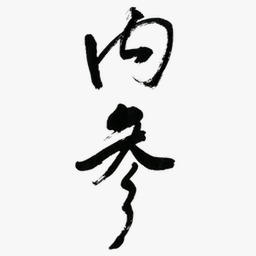Trump is a strategic gift for Beijing

Adam Ni, visiting scholar at the Institute of International Relations, National Chengchi University.
Trump is a strategic gift for Beijing. He is undermining the US' international position and domestic cohesion at a critical time when it desperately needs to refocus on key challenges, including China. Even as Trump confronts China on trade and security issues, he is exacerbating the conditions for American decline and China’s continued rise internationally by turning inward.
While Trump challenges China’s economic and regional security interests, he has failed to devise an effective strategy for long term strategic competition with China. It is in Beijing’s interest to see Trump’s impeachment process, and US political infighting, continue. Many in Beijing holds the view that US political polarisation and paralysis is confirmation that China’s hybrid authoritarian political system is superior to western-style democracy.
There are four key aspects of Beijing’s Trump gift-challenge: regional security, trade, strategic competition, and political systems.
On regional security, the narrow-minded and narrow-hearted “America First” approach to international affairs is eroding US leadership, opening up space for Beijing. Decisions such as new missile deployments to Asia and giving Taiwan more support worries Beijing. But Trump is also undermining the US alliance system and credibility in the region, by pressuring Japan and South Korea to pay more for US troops stationed in these countries and targeting these allies in protectionist trade measures. These have profound implications for how well the US can compete with China in the years ahead.
On trade, important domestic constituents (such as farmers) are struggling from the ongoing conflict. Political pressure from the impeachment process adds further pressure for Trump to close a deal with Beijing and claim a “win”. The closer we got towards the 2020 election, the more pressure there will be. Trump’s multiplying domestic political troubles, however, make it harder for his administration to focus on external priorities.
On long term strategic competition, US policies, including on Iran, Russia and North Korea, are creating the potential for strategic diversions. US adventures in the Middle East after 911 was a costly strategic diversion. The US can’t afford another misadventure in the face of Beijing’s rise. Certainly, Trump has not shown the leadership and imagination necessary for addressing the China challenge, and an effective plan for strategic competition has yet to materialise.
On a deeper level, beyond immediate interests, the impeachment and dysfunctional US political system are seen by CCP leaders as failings of western-style democracy. Liberal values, checks and balances, and free media are seen as sources of instability rather than strength. From Beijing’s perspective, the ongoing mass anti-government protests in HK is a vivid confirmation of this.
Comment from Yun Jiang (co-editor): There was general support for Trump in China right after the last presidential election. Trump is seen as someone who speaks “plainly” about foreign policy. Trump’s way of linking different issues (e.g. trade and HK) mirrors Beijing’s tactics. Beijing does not like the Trump Administration’s targeting of China (such as the Pence speeches), but it likes the “chaos” Trump has caused in the US and its attitude towards alliances. For allies, Trump is an added incentive to be less reliant on the US, both in economics and security.
China Neican, concise, timely, and policy-focused analyses.
